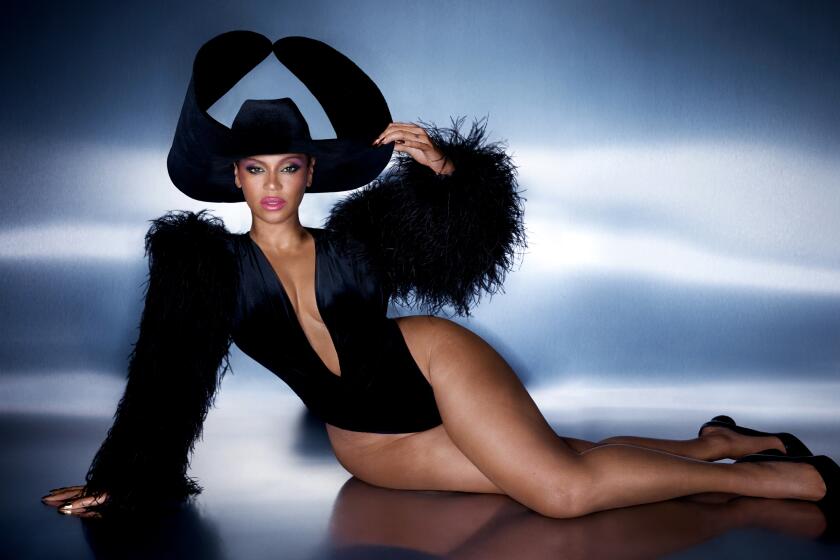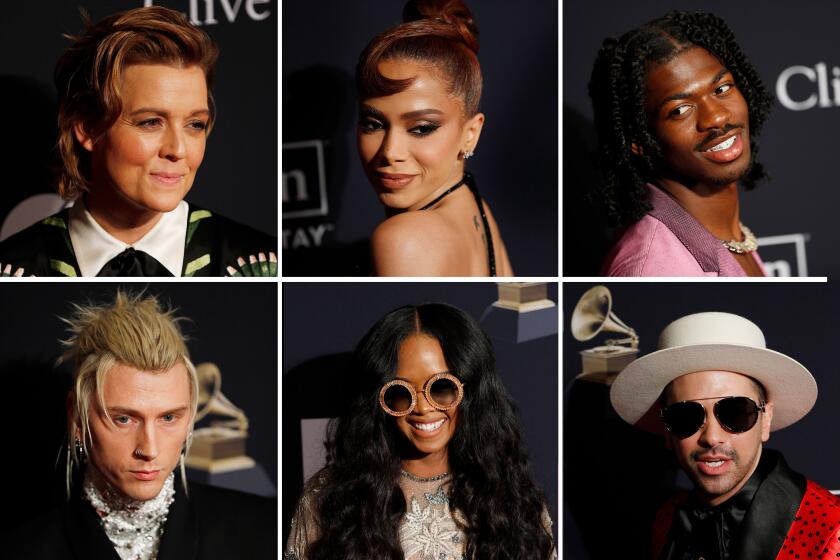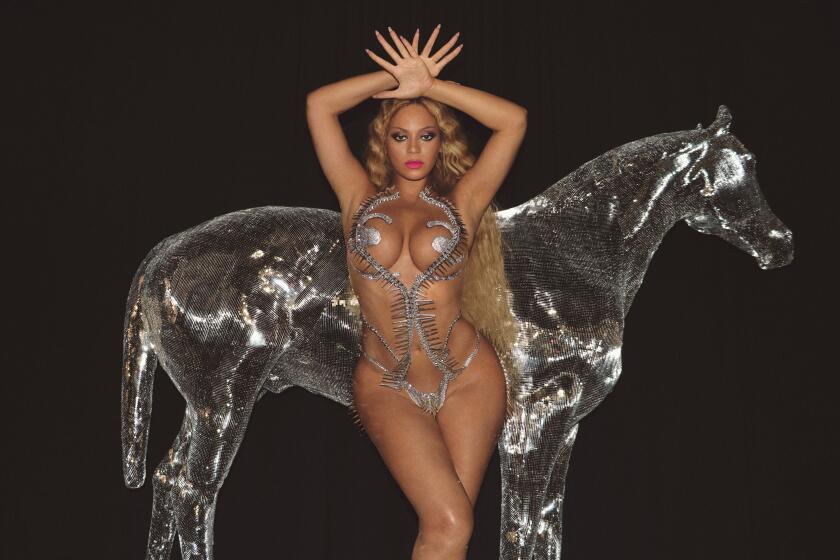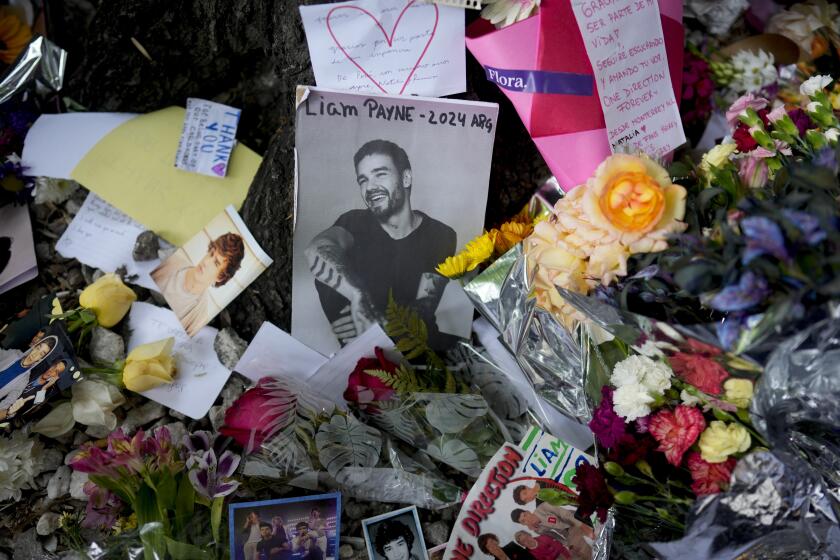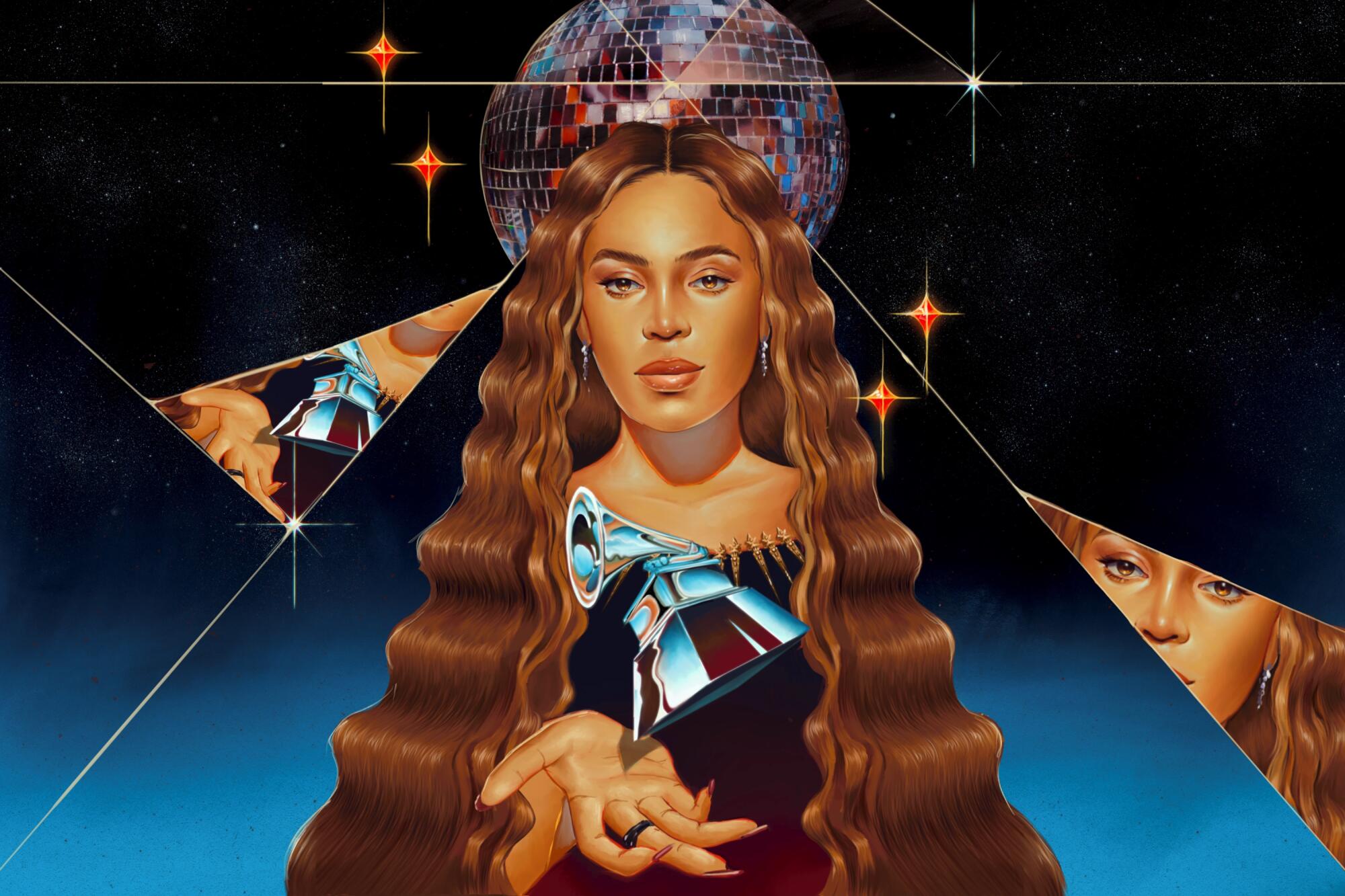
The math is clear, so let’s start there.
If Beyoncé takes home at least four prizes during Sunday’s 65th Grammy Awards, the singer, songwriter, producer, dancer, actor, designer and hot-sauce lover will become the winningest person in Recording Academy history. More winning than Michael Jackson, more than Paul McCartney, more than Stevie Wonder and U2 and Aretha Franklin. And with a leading nine nominations this year — a haul that brought her even with her husband, Jay-Z, for the most nods (88) of all time — Beyoncé could set the record even if she loses more Grammys than she wins as she sits among the stars assembled at Crypto.com Arena.
Yet for all the different ways she might get to her 32nd Grammy — Georg Solti, the late classical conductor, holds the current record with 31 — many eyes will be on just one prize: album of the year, for which Beyoncé is nominated with “Renaissance,” her sprawling and meticulous homage to the history of Black and queer dance music.
Beyoncé has added seven more dates to her ‘Renaissance’ world tour after ‘fan demand exceeded the number of available tickets by more than 800%.’
It’s her fourth time competing for the Grammys’ flagship award, following earlier nods for 2008’s “I Am…Sasha Fierce,” 2013’s “Beyoncé” and 2016’s “Lemonade” — all of which lost album of the year. (You’ll remember “Lemonade’s” defeat, when Adele used her acceptance speech to say she shouldn’t have won.) Indeed, Beyoncé’s dozens of wins at the Grammys threaten to obscure the fact that pop’s most ambitious superstar keeps coming up empty in the ceremony’s top general categories; all but one of her 28 victories — for song of the year, which she took in 2010 as a writer of “Single Ladies (Put a Ring on It)” — have come in genre-based categories like R&B song and urban contemporary album.
That needs to change on Sunday.
It’s not that the genre awards don’t matter or don’t tell part of the story of Beyoncé’s ascent; certainly, no other duo or group recorded a better R&B performance the year Beyoncé’s old outfit Destiny’s Child won for the slinky and audacious “Say My Name.” But those prizes’ tight focus is out of sync with the broad scope and the heavy drive of Beyoncé’s music, which reaches a dizzying new peak on “Renaissance.”
Said songwriter and producer The-Dream in a conversation last fall with The Times about his years of work with Beyoncé: “This is probably her best record. There’s no way around it for me. This is one of those ones.”
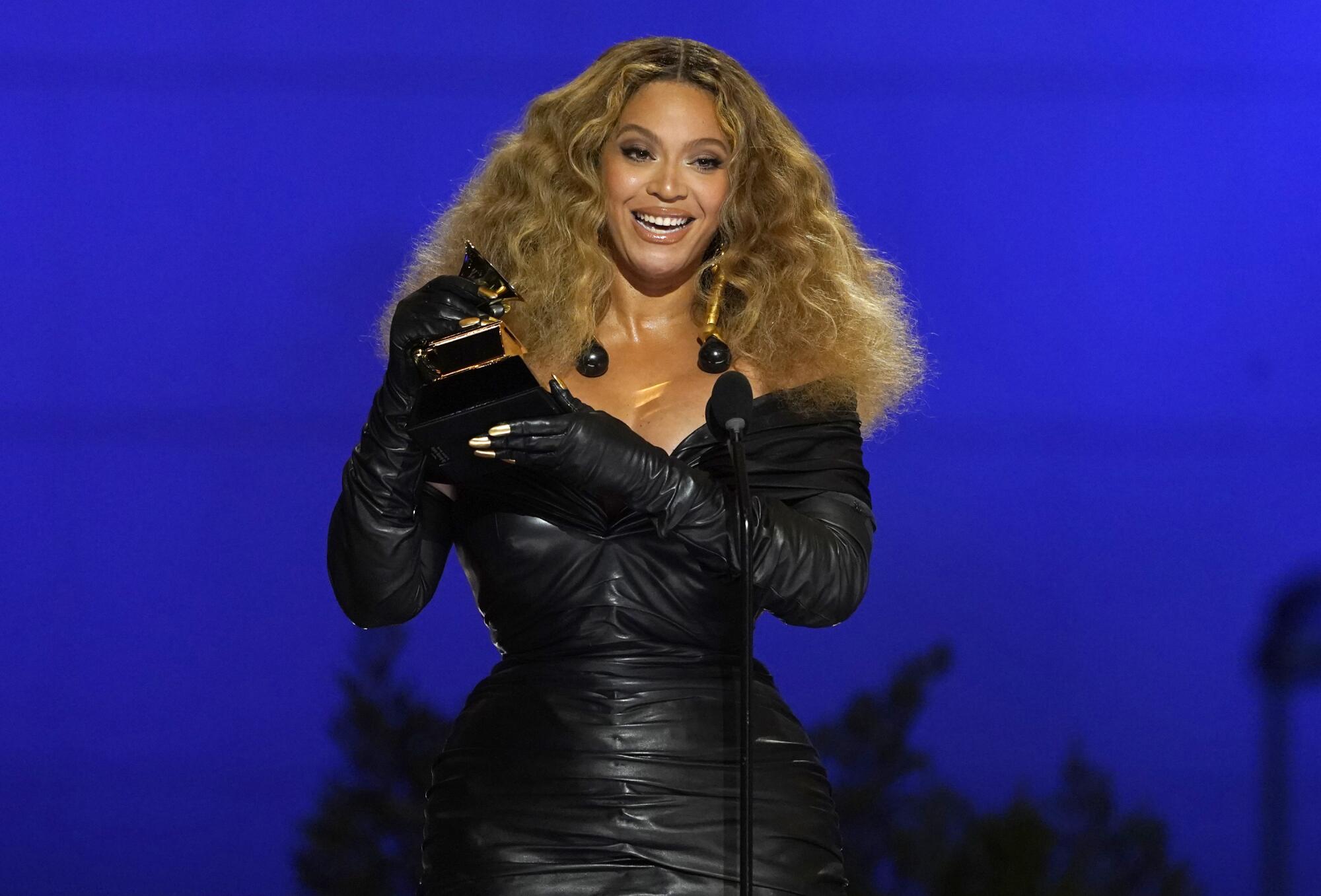
Grand-scaled yet painstakingly plotted, obsessed with tradition while attuned to the future, “Renaissance” is a masterpiece of both form and feeling, with some of Beyoncé’s finest singing — growly, sensual, playful, angelic — amid arrangements that pull inspiration (and the occasional sample or interpolation) from a deep archive of disco, funk, techno, Afrobeats, hip-hop and ballroom music. Appearances by and contributions from Grace Jones, Honey Dijon, Nile Rodgers, Skrillex, Syd, Sheila E., Raphael Saadiq and the late Donna Summer create a busy cross-generational conversation about love, sex, family and the quest for liberation that Jason King, incoming dean of USC’s Thornton School of Music, compares to the Oscar-nominated movie “Everything Everywhere All at Once.”
The event included performances from Maneskin, Lizzo, Sheryl Crow, Jennifer Hudson, Frankie Valli, Lauren Daigle, Latto, Lil Baby and Lil Wayne.
“I think Beyoncé absorbed the energy of multiversal possibility,” says King. “It conjures an alternate reality that serves as a testament to the power of what recorded music can be.”
Song by song, the thrills keep coming, which is why the ’90s-house excursion “Break My Soul” is nominated at the Grammys for record and song of the year while three other tracks — “Virgo’s Groove,” “Plastic Off the Sofa” and “Cuff It” — are up for various R&B prizes. But the way “Renaissance” coheres, with its intricate transitions and clever callbacks, is the real wonder to behold; it’s by far the most album-y of the 10 LPs competing for album of the year.

The formula for success in album of the year, which despite the fragmentation brought on by digital streaming is still the Grammys’ equivalent of best picture, has always been a shifting mixture of commercial might, critical acclaim and cultural impact. And though Beyoncé’s impact is clear — just look at the frenzy that broke out on social media this week when she announced her upcoming world tour — the rapturously reviewed “Renaissance” isn’t the biggest blockbuster in the category. Bad Bunny’s “Un Verano Sin Ti” has nearly five times the number of streams; Adele’s “30,” Harry Styles’ “Harry’s House” and Kendrick Lamar’s “Mr. Morale & the Big Steppers” have more as well.
Dan Runcie, who writes the popular music-business newsletter Trapital, points out that Beyoncé’s decision not to release music videos for the songs on “Renaissance” (at least not yet) might’ve shortened the album’s moment in the marketplace. Still, it’s not just critics banging the drum for Beyoncé; an informal poll of Grammy voters and industry execs showed widespread support for “Renaissance” to win album of the year.
“She’s one of our greatest artists and has never received the album award,” says Lenny Beer, editor of the trade journal Hits. “Her new music is both current and nostalgic, accessible and progressive. Her time is now.”
‘Renaissance’ reveals a depth of knowledge regarding rhythm and harmony that puts her as an arranger and bandleader on a level with Prince and Stevie Wonder.
So what are the obstacles in her way? For one thing, the Recording Academy has never shown much love toward dance music in the major Grammy categories; its electorate of more than 11,000 music professionals contains plenty of players and engineers with a vested interest in preserving the practice of recording “real” instruments in carefully maintained physical spaces. (Consider that the French dance duo Daft Punk won album of the year in 2014 with an LP, “Random Access Memories,” that they described explicitly as an embrace of old-school studio vibes.)
As an institution, the Grammys have also proven suspicious of the kind of highly collaborative record-making involved in “Renaissance,” whose credited writers, producers and performers run into the several dozens. “They’ve tended more to celebrate the individualist folk auteur,” King says, referring to the likes of Adele, Taylor Swift and Beck, whose “Morning Phase” beat “Beyoncé” for album of the year — and whose music emphasizes an idea, however illusory, of narrow personal autobiography over the more expansive, multifaceted narrative “Renaissance” deploys.
Of course, the faces of those past Grammy winners can’t help but call to mind the racial component that’s also at play here. No Black woman has taken album of the year since Lauryn Hill in 1999 with “The Miseducation of Lauryn Hill”; only two other Black women, Whitney Houston and Natalie Cole, have won the category in the Grammys’ 65-year history, an absurd distortion of their importance to the entire realm of pop music. That failing is among the reasons a growing number of prominent Black artists, including Drake and Frank Ocean, are declining to take part in the annual ceremony and other academy rituals.
Do those concerns over a lack of representation mean that an overdue win for Beyoncé — whose career has been proceeding just fine without a Grammy for album of the year — would benefit the academy at least as much as it would the artist?
“Seeing Beyoncé up there onstage holding that trophy — I do think that would help with the perception problem,” says Runcie. “At least it could slow any further decline.” The academy says that last year it welcomed nearly 2,000 new members, 44% of whom are from “traditionally underrepresented communities.” And it’s worth noting that, as regards the topic of inclusion, there are plenty of reasons to cheer other potential winners: “Un Verano Sin Ti” would be the first Spanish-language project to be named album of the year; Brandi Carlile’s “In These Silent Days,” which some of those polled expect to triumph, would be the first winning album by an openly gay person.
Those achievements matter; they’re how the music industry makes room for more. But “Renaissance” transcends that conversation even as Beyoncé takes a crucial part in it.
Smart, funny, joyful, passionate and so, so pleasurable, “Renaissance” is already the album of the year. The Grammys needs to catch up to that reality.
